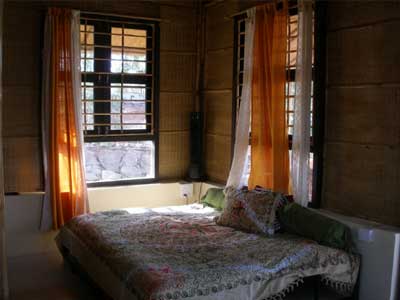Model of sustainable Land-use in Kokan, 10 acres | Golawali, Sangameshwar, Maharashtra
Kokan – the coastal belt of Maharashtra, rich in resource is facing severe degradation of privately owned lands. Mr. Pandit, owns 10 acres of land in south kokan, Golawali, Maharashtra, wishes to set an example of sustainable land-use for the local villagers. We have been involved in this venture since 2004, for assessing existing conditions of Ecology on the land and total catchment, understand social conditions and develop a Land management plan for long term benefits.


Ranwa, Forest restoration in Sahyadri, 24 acres | Wan-kusawade, Koyna catchment, Maharashtra
This project is planned & implemented by us since 2005 that can be called as a landmark project of forest restoration on a private land owned by Atul Kulkarni, Nitin Kulkarni, Dheeresh Joshi & others in catchment of Koyna dam, Maharashtra. Continual support of the owners is the important factor in such ventures & positive results achieved on land are worth replicating.
Sahyadri . . . a mountain range of diversity and fragile ecosystem is under constant threat from all sections of the society. Right from villagers staying in those woods to urbanites, all are constantly destroying natural heritage, through activities like shifting cultivation, roads, farm house development, township projects, etc. Western Ghats – Sahyadri, has gained world wide recognition as biodiversity hotspot. Considering the extent & speed of development, time has come to incorporate eco-management techniques in current practices that will reduce the adverse impacts by some percentage.
Here in Koyna, the climax forest of the region is being restored on heavily degraded land spread over 24 acres. Activities like soil – moisture conservation, habitat development, vegetation development, planting native species are undertaken & have started showing positive results on land. Local people have keen interest in new ideas and concept of self-sufficiency can be extended to their own farms through planned interactions and activity based program. Same model can be replicated elsewhere after studying the site specificity of that area.
This project proves that low cost techniques of eco-restoration are very effective & have become a highlight of our work !
Restoration work & Results


Private farm house with eco-perspective, 6.5 acres | Jambhli, Panshet, Maharashtra
It is observed that city people who purchase land in countryside blindly follow certain practices like flattening the land, planting horticulture crops like Mango or the non-natives like Gulmohor, Eucalyptus etc.
We tried to change this to an eco-wise practices on farm owned by Dr. Kale at Jambhli, near Panshet, Maharashtra that is spread over 6.5 acres, in 2006. Considering needs & wishes of the owner, a practical land-use was evolved that included separate areas for horticulture, cultivation of seasonal crops, timber, & an area was kept specifically for nature as it was. Native species were selected for beautification & plantation. Land moving work was entirely done by people, not using the huge machines like excavators. A lot of stone work was carried out on land without using cement. The work was planned & supervised by our team from 2005 to 2009.


‘Eco-farmhouse’ - Designing & Execution, 0.5 acres | Khanapur, Pune, Maharashtra
Considering current trend of development & resource crunch, it is important to use natural materials & eco-landscaping principles while developing a farm house which is just a weekend home. One such venture was designed & implemented by us in Khanapur, near Pune on land spread over ½ acre in 2009. Bamboo – a renewable construction material is used for the house instead of regular cement-steel that have very high ecological footprint. The surrounding garden uses resource & energy friendly techniques while using Native plants in beautification. Use of lawns is totally avoided in the garden & cement is not at all used for any of the pathways or parking space.


Signage on Mulshi road
Sahyadri is becoming favourite destination for tourism activities. Mulshi region being close to Pune have seen drastic changes in last few years.
To make visitors aware of the fragile ecosystem in this area, we initiated an idea of putting up sign boards on the way with active support of locals. This idea was taken ahead by Rotary Club of Poona West by sponsoring these sign boards in 2006. This may generate some awareness amongst visitors and urge them for doing positive activities for nature conservation.



